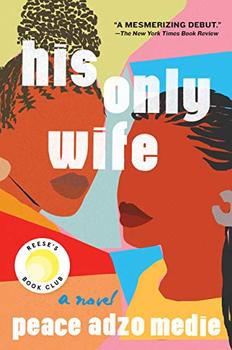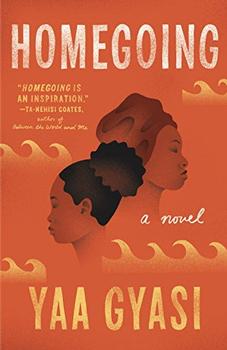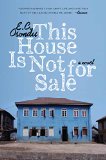Summary | Excerpt | Reading Guide | Reviews | Beyond the book | Read-Alikes | Genres & Themes | Author Bio

"Elikem married me in absentia; he did not come to our wedding."
Afi Tekple is a young seamstress whose life is narrowing rapidly. She lives in a small town in Ghana with her widowed mother, spending much of her time in her uncle Pious's house with his many wives and children. Then one day she is offered a life-changing opportunity—a proposal of marriage from the wealthy family of Elikem Ganyo, a man she doesn't truly know. She acquiesces, but soon realizes that Elikem is not quite the catch he seemed. He sends a stand-in to his own wedding, and only weeks after Afi is married and installed in a plush apartment in the capital city of Accra does she meet her new husband. It turns out that he is in love with another woman, whom his family disapproves of; Afi is supposed to win him back on their behalf. But it is Accra that eventually wins Afi's heart and gives her a life of independence that she never could have imagined for herself.
A brilliant scholar and a fierce advocate for women's rights, author Peace Adzo Medie infuses her debut novel with intelligence and humor. For readers of Chimamanda Ngozi Adichie and Candice Carty-Williams, His Only Wife is the story of an indomitable and relatable heroine that illuminates what it means to be a woman in a rapidly changing world.
There is clear critique here of the widespread practice of unofficial polygamy in Ghana. Without ever adopting a judgmental tone, Medie highlights the ways in which the practice of locking women into moral contracts without proper legal protection or reciprocal opportunities upholds patriarchal structures, enforcing longstanding division between genders and classes. Medie brings the West African nation's rich and complex culture to life on the page, showing the contrast between the traditional customs still upheld by many (particularly in more rural areas) and the increasingly cosmopolitan way of life spreading throughout the capital...continued
Full Review
 (593 words)
(593 words)
(Reviewed by Callum McLaughlin).
In her novel His Only Wife, Peace Adzo Medie captures the clash of tradition and modernity in present day Ghana. Medie belongs to a long line of talented women writers who show the country's rich culture and history to be bountiful sources of inspiration. Here are just a few of the most exciting Ghanaian women on the current literary scene.
 Ama Ata Aidoo was born in a Fanti village in 1942. Her father, the village chief, established the first school there and encouraged her to pursue education from a young age. Now a successful novelist, poet and playwright, she has served as Ghana's Minister for Education and founded the Mbaasem Foundation, an organization that actively supports African women writers. Her best-known works include ...
Ama Ata Aidoo was born in a Fanti village in 1942. Her father, the village chief, established the first school there and encouraged her to pursue education from a young age. Now a successful novelist, poet and playwright, she has served as Ghana's Minister for Education and founded the Mbaasem Foundation, an organization that actively supports African women writers. Her best-known works include ...

If you liked His Only Wife, try these:

by Yaa Gyasi
Published 2017
Winner of the 2016 BookBrowse Debut Author Award
A novel of breathtaking sweep and emotional power that traces three hundred years in Ghana and along the way also becomes a truly great American novel. Extraordinary for its exquisite language, its implacable sorrow, its soaring beauty, and for its monumental portrait of the forces that shape ...

by E.C. Osondu
Published 2016
A vivid, fully imagined portrait of an extraordinary African family and the house that holds them together.